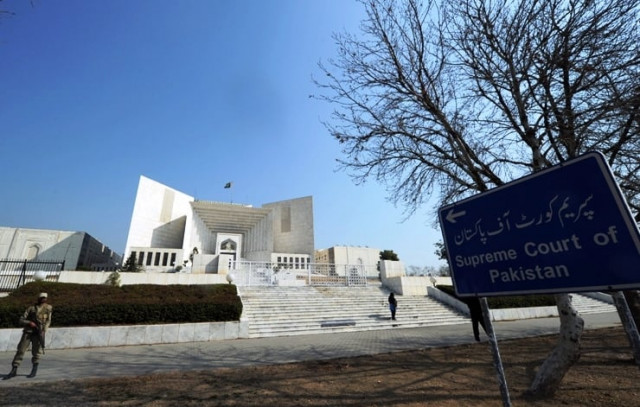Media commission case: Every rupee from public purse is auditable, says SC
Says parliament can make law to classify certain information.

The judgment also acknowledges that there may be exceptional circumstances where certain audit information would need to be kept outside the public purview. PHOTO: AFP/FILE
The Supreme Court ruled on Tuesday that every single rupee spent from the public exchequer was subject to audit. However, the parliament may legislate to restrict disclosure of classified information.
“… the distinction between ‘audit’ and ‘secrecy’ is made clear. It would be for the auditor general to ensure the audit of each rupee spent from the consolidated fund and public accounts, without exception. Parliament may make a law imposing ‘reasonable restrictions’ on public disclosure of such parts of the auditor general’s report as may be classified. Such a law, needless to say, will need to pass under the Constitution,” said the detailed judgment in the media commission case.
The order was issued on a petition filed by journalists regarding media freedom and government spending on the media. The petitioners had sought the abolition of Secret Service Funds which have purportedly been used by successive governments to buy the loyalty of journalists and other opinion-makers.
Authored by Justice Jawwad S Khawaja – one of the three judges on the bench – the 20-page judgment said that Rule 37(5) of the General Financial Rules of the federal government was unconstitutional.

“This rule had up till now been used to shelter Secret Service Funds from independent audit by the auditor general of Pakistan – funds which existed in the budget of no less than 27 ministries for the FY (fiscal year) 2012-13 and amounted to more than Rs3.57billion. The court has clarified that after the 18th constitutional amendment, on account of Article 170(2), the AGP enjoys a strong constitutional mandate to audit all public spending without exception,” reads the judgment.
“Funds which have been declared as secret either by an executive order or ordinary legislation do not fall outside this purview.”
Furthermore, autonomous public bodies which do not receive any government funding, but are established by the government or are under its control, are also not beyond the AGP’s duty and power to audit, adds the order.
The apex court also clarified that under Article 171, the AGP’s reports must be shared with the president, governor, parliament and provincial assemblies.
Justice Khawaja highlighted that accountability of those who held high office in the government represented “the very foundation for the levy and legitimacy of taxes, etc.”
The judgment cites the example of countries all over the world, including the United Kingdom, France, Germany and Israel where state auditors have full access to the accounts of secret services. Even the security state of Israel, which has one of the most notorious intelligence operations, and agencies in the world, accounts of secret services are not beyond the mandate of the state auditor, reads the judgment.
Nonetheless, the judgment also acknowledges that there may be exceptional circumstances where certain audit information would need to be kept outside the public purview. If such exceptions are to be claimed, they must be claimed through legislation and not in an arbitrary manner. Furthermore, such legislation would be subject to a judicial review to ensure compliance with constitutional requirements, it adds.
Govt to implement judgment
Federal Information Minister Pervaiz Rashid said that the Supreme Court’s judgment would be implemented in letter and spirit.
He said that the PML-N has abolished secret funds of all ministries and departments. The secret funds used by the previous governments would be audited, Rashid said, adding that the government would not keep information secret and make all facts public.
Published in The Express Tribune, July 17th, 2013.



















COMMENTS
Comments are moderated and generally will be posted if they are on-topic and not abusive.
For more information, please see our Comments FAQ